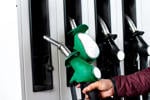LPG vehicle use within the fleet market could be set to soar thanks to a new alliance due to be launched on 1 July 2011.
Provisionally called ‘dual fuel savings’ the alliance will include a national fuel chain, a fleet vehicle supplier and financier plus the consent of eight of the UK’s major vehicle manufacturers.
“This alliance will hopefully mean that fleets will start to look at LPG as a viable option to petrol and diesel vehicles,” said John Burke, director of member Autogas Network.
“Here in the UK we are so far behind Europe when it comes to taking up LPG and I think it’s about time we addressed that.”
Although there are thought to be around 150,000 LPG vehicles on UK roads Europe boasts more than 7m. With just 1400 LPG filling stations, compared to 33,000 in Europe, it would seem that the British have been slow to embrace this technology, something that Burke puts down to “our nervous approach to anything new”.
The agreement will allow fleets to order petrol vehicles, which will be converted to LPG, and due to bulk discounts obtain an extremely competitive purchase price combined with the substantially reduced running costs of LPG vehicles. There are some caveats to the deal though; only certain petrol models will be available and with set specifications.
The alliance has already run a trial of the system with Vauxhall and so far has realised a return of 9.1p/mile for converted LPG vehicles as against 12.6p/mile for diesel and 17.1p/mile for petrol. This has been helped by the low cost of LPG compared to unleaded or diesel. The current average price of LPG is 77.5p/l but if fleets have their own tank installed on site the cost could drop to just 67.5p/l, according to Burke.
Carl Truscott, joint managing director of London-based Courier Systems is certainly in favour of using LPGs within the fleet: “Over the last 10 years we have proven that using LPG vehicles it is not only an environmentally friendly option, but a cost effective one. Our move to invest in LPG stems from our original commitment to service our clients with environmentally friendlier deliveries ande will continue to retain LPG as an investment option moving forward.”
Burke believes the launch has come at the right time as by 2020 there is a European requirement to ensure that 20% of vehicles on our roads are running on alternative fuels (including Hydrogen and electric): “Hydrogen and electric vehicles are still too far away to have an immediate effect – it could be 10 or even 20 years before we see a real impact from these vehicles. But LPG is here now.
The Alliance expects to sell 3-4000 vehicles a year within the first three years and has already placed substantial forward orders. Lead time is expected to be about eight weeks depending on the size of the order.
To have your say, click here to vote on the Fleet News Poll!
Author: Tony Meredith

















Login to comment
Comments
No comments have been made yet.